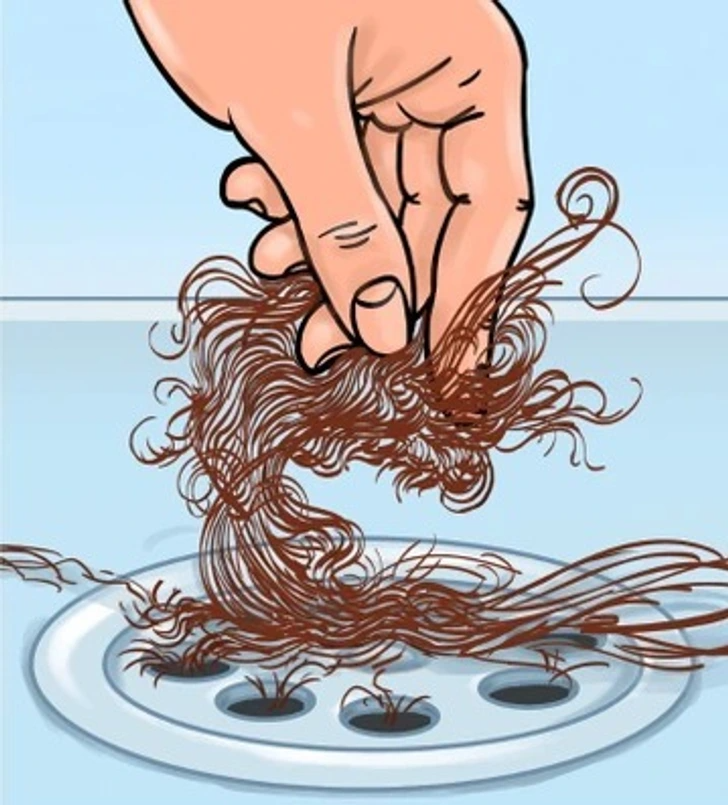In today’s fast-paced world, stress has become an inevitable part of daily life. Work responsibilities, family matters, and the constant flow of information put immense pressure on both our emotional well-being. However, our body has a way of signaling when stress levels become dangerously high. Ignoring these warning signs can lead to serious health consequences. If you notice any concerning symptoms, don’t overlook them—seek professional help in time.
CONTENT IS PROVIDED FOR INFORMATIONAL PURPOSES ONLY AND IS NOT INTENDED AS A SUBSTITUTE OF MEDICAL ADVICE. SEEK GUIDANCE OF YOUR DOCTOR REGARDING YOUR HEALTH AND MEDICAL CONDITIONS.
Hormonal imbalance

Some studies suggest that stress can cause hormonal imbalances. In some cases, high levels of cortisol can lower estrogen and progesterone, leading to breast changes, loss of firmness, or increased tenderness due to fluid retention. At the same time, stress can trigger excess insulin production, which may contribute to darkening of the underarms and other skin folds, a condition known as acanthosis nigricans. Additionally, chronic stress weakens the skin barrier, making it more prone to dryness, breakouts, and irritation.

Tense muscles
Tension in your neck, shoulder, or back can also be caused by stress. Muscles tense up in response to stress, and if they remain in a tightened position for too long, it can cause aches and pains. Some home remedies can help to relax your muscles, like applying a warm compress or heating pad to the affected muscle while gently stretching it can also help.

Problems with digestion
Research has shown there is a strong connection between our brain and our digestive tract through the central nervous system. When we have anxiety and stress, hormones and neurotransmitters are released in the body. This can negatively impact gut motility, or the way our intestines and stomach squeeze and move waste through the body.

Also, stress can affect the delicate balance of bacteria in our gut, causing an upset stomach. While feeling butterflies in your stomach is normal, ongoing stressful situations can lead to diarrhea, constipation, or an upset stomach. You might also have heartburn or acid reflux.
Gum disease
Stress can also weaken the body’s ability to fight off infections and diseases, including gum disease. This weakening of the immune system from stress is a major factor behind the progression of gum disease, allowing it to move from gingivitis into periodontitis with the risk of losing teeth.
It’s important to make sure you take extra care of your teeth and mouth. Thoroughly brush your teeth twice a day and floss every day to clean between your teeth. Regular check-ups at your dentist are also necessary steps if you want to keep your teeth.
Issues with sleeping
Surely everyone has already experienced this symptom as sleeping well when you’re feeling nervous or anxious about something is not easy. But it’s a vicious circle, if you don’t sleep enough your whole day can be ruined, making you more tired. Long-term consequences of insomnia on your body include an increased risk of heart disease, diabetes, and even cancer.

Following a balanced diet and exercising throughout the week, controlled breathing, and other relaxation techniques can help reduce stress and make sleep easier.
Headaches
Stress can cause severe headaches as well. The most common type of headache, tension headache, is caused by a tightening of your muscles, particularly in your neck and scalp. This causes you to feel pressure or squeezing all over, in the temples, or even the back of the head.
Relaxation techniques can reduce symptoms of stress, including headaches. Listen to music, dance, play a sport, read a book, or play with a pet. Set aside time to practice relaxation, try one of these relaxing activities: meditation, yoga, tai chi, and deep breathing.
Hair loss

Stress can be a major trigger for hair loss due to hormonal imbalances—a condition known as telogen effluvium. Stress can also raise androgen (male hormone) levels, which may contribute to thinning hair and weaker strands, especially in women.
Source: nowiveseeneverything.club
